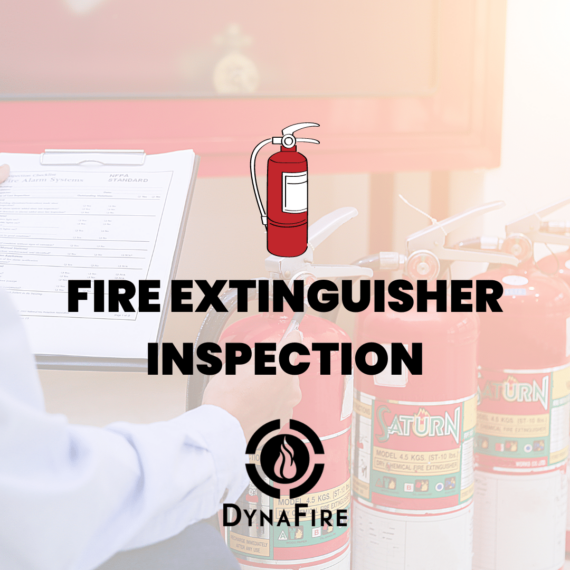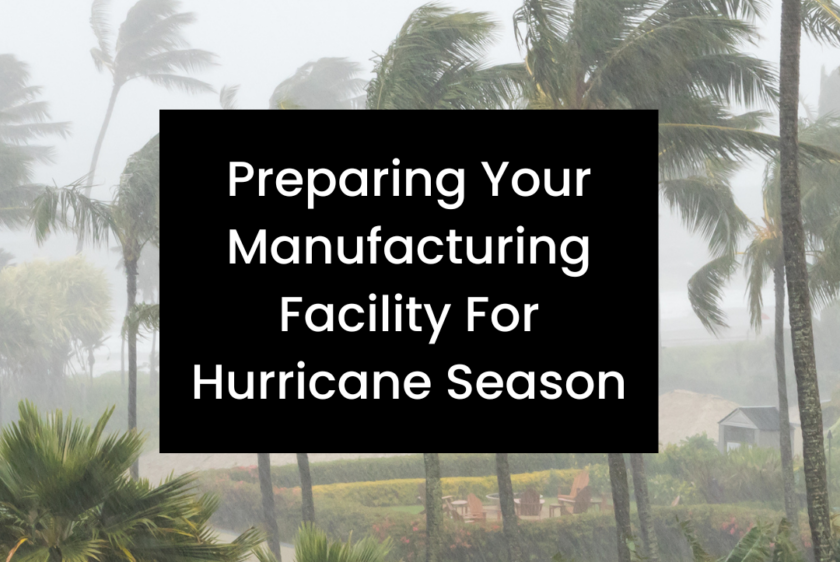Hurricane preparedness for industrial facilities is crucial, especially as we enter what is predicted to be an “above-normal” 2024 hurricane season.
Earlier this year, the National Oceanic and Atmospheric Administration (NOAA) reported an 85% chance of an active hurricane season, with predictions of 17 to 25 total named storms. Eight to 13 storms could become hurricanes, and four to seven could escalate to significant hurricanes.
Given these projections, preparing your manufacturing facility for hurricane season is essential to protect your operations and the surrounding community.
Chemical Facilities Pose Special Risks
Chemical facilities, particularly those on the Gulf Coast, face significant risks during hurricane season. Hurricanes in the Atlantic can cause severe damage to these facilities, leading to potential environmental and safety hazards.
A recent study identified over 870 highly hazardous chemical facilities within 50 miles of the Gulf Coast, impacting approximately 4.3 million people, 1,700 schools, and 100 medical facilities.
Past incidents, such as the Arkema Inc. chemical fire during Hurricane Harvey and the Bio-Lab fire after Hurricane Laura, highlight the importance of robust hurricane preparedness for industrial facilities.
NFPA Codes and Standards for Protection
Implementing comprehensive disaster preparedness and response plans is critical to mitigating risks associated with hurricanes. The NFPA 1660, Standard for Emergency, Continuity, and Crisis Management, offers guidelines for creating, implementing, assessing, and maintaining effective disaster management and business continuity programs.
This standard covers various aspects of disaster preparedness, response, recovery, and mitigation, ensuring facilities can continue operations despite disruptions.
Key Elements of NFPA 1660
- Risk Assessment: Conduct comprehensive risk assessments to discover potential hazards and vulnerabilities.
- Planning: Develop detailed emergency response plans, including evacuation routes and communication protocols.
- Communication: Establish reliable communication channels to disseminate information quickly during an emergency.
- Training: Regularly train employees on emergency procedures and personal protective equipment (PPE) use.
- Ongoing Improvement: Continuously review and update plans based on new information and past experiences.
In addition to NFPA 1660, other NFPA standards, such as NFPA 110 (Emergency and Standby Power Systems) and NFPA 59A (Production, Storage, and Handling of Liquefied Natural Gas), provide further guidance on protecting facilities from natural disasters.
Practical Steps for Hurricane Preparedness
Create a Disaster Recovery Plan
Develop a written disaster recovery plan that includes actions to take during a hurricane. This plan should address resources, budgets, data, suppliers, and compliance requirements that may be affected by a disaster. Regularly review and update the plan to ensure its effectiveness.
Revisit Your Insurance Coverage
Review your insurance coverages annually to ensure they meet your needs. Consider adding riders for hurricane-related damage, as typical flood or property insurance may not cover all potential losses.
Evaluate Your Supply Chain
Assess your supply chain’s vulnerability to hurricanes. Identify alternative suppliers and establish contingency plans to obtain critical goods if disruptions occur.
Consider Your Inventory Metrics
Adjust inventory metrics to maintain higher levels of essential materials during hurricane season. This ensures you can continue operations even if suppliers are disrupted.
Think About Your IT Infrastructure
Protect your IT infrastructure by utilizing offsite or cloud-based storage options. Train employees on cybersecurity protocols to safeguard against increased phishing and scam attempts during natural disasters.
Conduct Regular Inspections
DynaFire provides comprehensive inspection services to ensure all fire safety systems in your facility function optimally. Regular inspections of fire alarm systems, sprinkler systems, and emergency lighting are crucial for maintaining a safe environment.
Our certified technicians conduct thorough assessments and maintenance checks, ensuring compliance with safety standards and providing peace of mind for facility managers and employees.
Maintain Fire Extinguishers
Ensure all fire extinguishers are regularly maintained and recharged. Proper maintenance is essential for an effective emergency response.
Train Your Staff
Regularly train your staff on emergency procedures, including using PPE and fire safety equipment. Conducting drills and training sessions helps employees respond quickly and efficiently during a hurricane.
Stay Safe This Hurricane Season With DynaFire
Preparing your manufacturing facility for hurricane season is vital to protect your operations, employees, and the surrounding community. By following the guidelines outlined in NFPA standards and implementing practical preparedness measures, you can mitigate risks and ensure your facility is ready to handle the challenges of hurricane season.
At DynaFire, we specialize in providing comprehensive Fire & Life Safety solutions tailored to industrial facilities’ unique needs. Our team of certified technicians is dedicated to ensuring your facility is equipped to handle severe weather events, from regular inspections and maintenance to emergency response training and planning.
Contact DynaFire today to learn how we can help you enhance your facility’s hurricane preparedness and safeguard your operations year-round.






